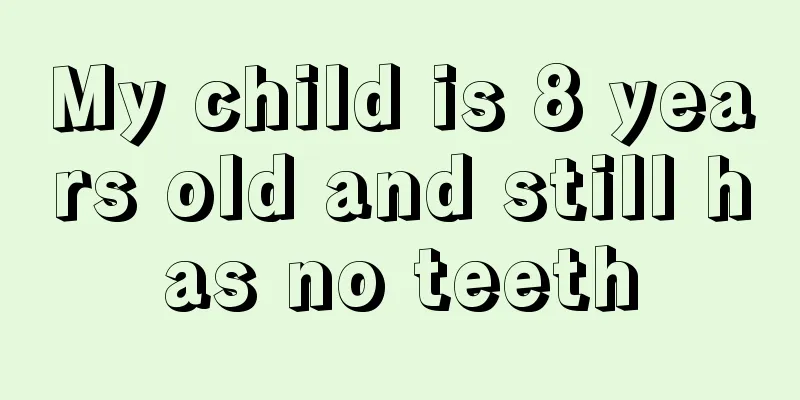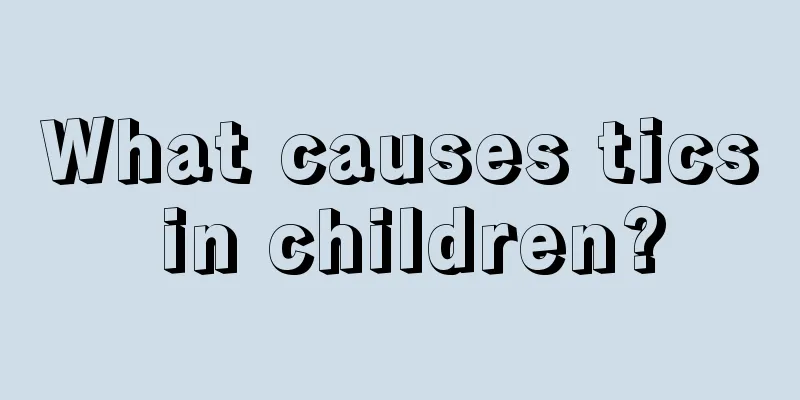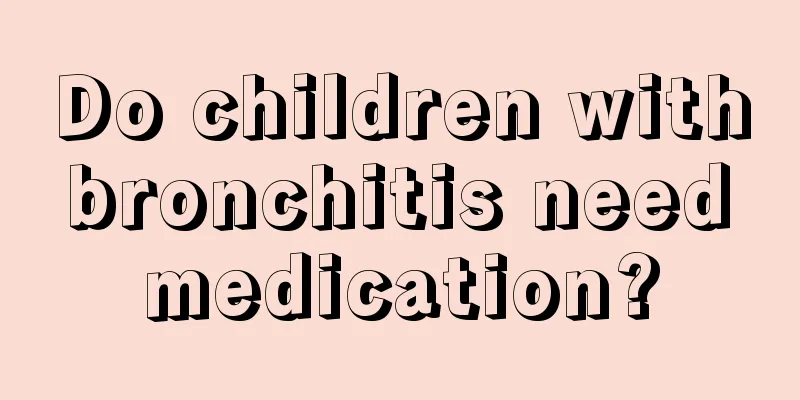My child is 8 years old and still has no teeth

|
If a child has not changed his teeth by the age of 8, it means that the tooth replacement is slow. This is most likely caused by the child's calcium deficiency. We can see from the child's bones that the child will have slow bone development and loose bones, so we should pay attention to the baby's calcium supplement. If your baby has not changed his teeth by the age of 8, and has not completely replaced his deciduous teeth by the age of 12, you need to go to the hospital for a check-up in time. At what age do children start to lose their teeth? Children usually start to lose their teeth around the age of 6. "Tooth replacement" is just a popular term among the people. In medicine, it is called "replacement of deciduous teeth." The replacement of deciduous teeth is divided into two processes: one is "deciduous tooth shedding", that is, the deciduous teeth gradually loosen until they fall out. The second process is the "eruption of permanent teeth", that is, as the deciduous teeth fall out one by one, the permanent teeth will erupt one by one. The process of replacing the entire mouth of deciduous teeth takes about 6 years, which means that the entire tooth replacement process is completed when the child is about 12 years old. By the age of 12, all of a child's deciduous teeth should have fallen out and been replaced by permanent teeth. If a child is over 12 years old and still has deciduous teeth in his mouth, he should go to the hospital for treatment. There are a few things to pay attention to during tooth replacement 1. Pay attention to the growth of your child’s deciduous teeth and permanent teeth, and see a dentist regularly to detect problems and solve them early. If parents find that permanent teeth have grown next to the deciduous teeth, but the deciduous teeth have not fallen out, forming a double row of teeth, parents should take their children to the hospital as soon as possible to remove the retained deciduous teeth. In addition, if the gap between the upper incisors is too large, deformed teeth grow from the upper incisors, or an incisor grows from an abnormal position, this means that there may be multiple teeth growing in one place, and you should go to the hospital for treatment. 2. Encourage your children to brush their teeth every day, once in the morning and once in the evening, to prevent tooth decay. Children should use children's special toothpaste and toothbrush to brush their teeth, and brush their teeth correctly, about two to three minutes. In addition to brushing teeth, it is best for children to rinse their mouths after each meal to maintain oral hygiene. 3. During the period of teeth replacement, children should eat more foods with high fiber content and a certain degree of hardness, such as beef, carrots, celery, corn, etc., to maintain stimulation to the deciduous teeth and promote the shedding of deciduous teeth on time. On the other hand, through chewing movements, the development of gums, jaws and facial bones can be promoted. 4. Correct children’s bad habits in time, such as sticking out the tongue, biting the tongue, biting fingers or pencils, licking teeth with the tongue, etc. These bad habits will affect the growth of children’s teeth and cause tooth deformation. 5. Pay special attention to protecting your child’s first permanent molar that grows out around the age of 6. Because the surface of newly erupted teeth is insufficiently calcified, they have poor acid resistance and are prone to decay. Within one year after the eruption of new permanent molars, parents should take their children to the hospital for pit and fissure sealing to prevent them from being decayed. Pit and fissure sealing is the most economical and effective method to prevent dental caries. What should I do if my child has not yet changed his teeth by the age of 8? Tooth loss is a natural process. If the child has not yet changed his teeth by the age of 8, you can let the child eat something hard, which will help the teeth fall out. If there is no sign of shedding, you need to take the child to a dental hospital for a check-up to see what is causing it and then take appropriate measures. |
<<: What is the reason for delayed tooth replacement in children?
>>: Is it normal for a baby to change teeth at the age of five?
Recommend
Can baby food cure eczema?
After birth, babies are prone to skin eczema beca...
How to treat toothache in children
Toothache in children is a relatively common dise...
What medicine should children take when they catch a cold?
When the seasons change or in the cold winter, ma...
Why does a child sweat on his head when sleeping?
We all know that children are naturally lively an...
Early symptoms of pneumonia in children
Pneumonia in children is a very common lower resp...
How many days does a baby's viral fever last?
When a baby has a fever, we usually have to find ...
Nursing methods for 20-day-old baby spitting up milk
Nowadays, every family has only one child, who is...
What to do if a baby scratches his face?
Babies like to grab things during their growth pe...
Baby has a high fever and cold hands and feet
We all know that the baby of every family is the ...
The symptoms of food poisoning in children are so serious
Because children have very poor ability to distin...
What to eat for children with gastroenteritis
Diet in life is very important to us. Improper ea...
What is the cause of diarrhea and yellow water in newborns and how to care for them
Many mothers have no experience in taking care of...
Why do children like to bite people?
Mothers really like to communicate about their ch...
How to better treat ADHD in children?
Although ADHD in children is not common in daily ...
What is the standard height and weight for a 3-year-old girl?
For parents, it must be very gratifying to see th...









